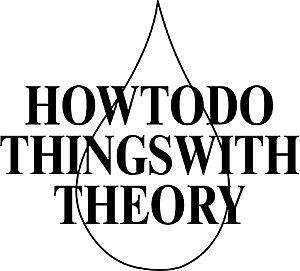Penumbra ~ Mayra A. Rodríguez Castro's seminar from Confluence to Confluence
May 2024: Confluence 5 in Middelburg
Absoluteness
The trumpeter and composer, Wadada Leo Smith, defines absoluteness as a traceable unit in musical composition—“the sum of the elements and their placement.”
In the fifth confluence of Penumbra, we will revisit works by Edmund Husserl, Frantz Fanon, and Marleau Ponty to draw a closing diagram of The Basic Principles of Phenomenology. This time, our efforts turn to the protocol as collective document of analysis and final thesis workshop. Our interlocutors include Omnia S. El Shakry and Nise da Silveira.
Saturday, May 25
10:00 - 13:00 — House
13:00 - 14:00: Lunch
14:00 - 18:00 — Thesis Workshop
19:00 - 20:00: Dinner
20:00 - 21:00 — Screening
Sunday, May 26
10:00 - 13:00 — House
13:00 - 14:00: Lunch
14:00 - 18:00 — Documents
19:00 - 20:00: Dinner
20:00 - 21:00 — Closing
Readings:
Edmund Husserl. The Basic Principles of Phenomenology. Translated by Ingo Farin and J.G
Hart. Dordrecht: Springer, 2006.
Martin Buber. I and Thou. Translated by Ronald Gregor Smith. London: T&T Clark, 1942.
Maurice Merleau-Ponty, Eye and Mind. Translated by Carleton Dallery. Evanston, IL:
Northwestern University Press, 1964.
Frantz Fanon. Alienation and Freedom. Translated by Steven Corcoran. London: Bloomsbury
Academic, 2018.
Wadada Leo Smith. notes (8 pieces). Chicago: The Renaissance Society, 2015.
April 2024: confluence 4 in Essaouira
Des nervures
Things have an internal equivalent in me; they arouse in me a carnal formula of their presence. — Merleau Ponty.
In this confluence of Penumbra, we will reflect on contemporary phenomenology, the betrayal of science, and the history of psychiatry as addressed by Merleau Ponty and Frantz Fanon. Parting from our readings of Husserl, and guided by the second to third chapters of his Basic Problems of Phenomenology, we will augment definitions of the Leib for a social, physical, and lived body today.
The fourth confluence of Penumbra will be accompanied by a perception diary written in Essaouira.
Friday, April 19
10:00 - 13:00 — Virtual House
13:00 - 14:00: Lunch
14:00 - 18:00 — Thesis Workshop
19:00 - 20:00: Dinner
20:00 - 21:00 — Screening
Saturday, April 20
10:00 - 13:00 — Virtual House
13:00 - 14:00: Lunch
14:00 - 18:00 — Perception Diary
19:00 - 20:00: Dinner
20:00 - 21:00 — The Basic Problems: Protocol
Sunday, April 21
10:00 - 13:00 — The Basic Problems: Protocol
*Office hours by sign-up
13:00 - 14:00: Lunch
14:00 - 18:00 — Thesis Workshop
19:00 - 20:00: Dinner
20:00 - 21:00 — Evening House
Readings:
Edmund Husserl. The Basic Problems of Phenomenology. Translated by Ingo Farin and J.G Hart. Dordrecht: Springer, 2006.
March 2024: confluence 3 at PAF
Consciousness
“In this world, there are not two separate worlds,” writes Husserl, although his definition of consciousness already proposes a fracture. For the philosopher, consciousness is the very distinction between what appears and ”the appearing itself.” In the second confluence of Penumbra we will revisit the opening chapter of The Basic Principles of Phenomenology. Our meeting will traverse the natural attitude, appearance, and forms of judgment to arrive at the notion of all-nature.
Saturday, March 9
10:00 - 13:00 — House
13:00 - 14:00: Lunch
14:00 - 18:00 — The Argument I
19:00 - 20:00: Dinner
20:00 - 21:00 — The Basic Body
Sunday, March 10
10:00 - 13:00 — House
13:00 - 14:00: Lunch
14:00 - 18:00 — The Argument II
19:00 - 20:00: Dinner
20:00 - 21:00 — Evening Farewell
readings:
Edmund Husserl. The Basic Principles of Phenomenology. Translated by Ingo Farin and J.G Hart. Dordrecht: Springer, 2006.
Martin Buber. I and Thou. Translated by Ronald Gregor Smith. London: T&T Clark, 1942.
January 2024: confluence 2 at NAC, Nida
The ‘I’ In the Natural Attitude
During the first confluence of Penumbra, we will consider the opening chapter of The Basic Problems of Phenomenology. Our collaborative reading will attend to concepts such as reduction, the ‘I’ and its faculties, forms of judgment, and the natural attitude. In this session, we will strive towards empathy and the other I. Our studies will include works by Abbás Kiarostamí and Ueda Akinari, as well as the letters of Antonio Gramsci, and compositions by Brother Ah.
Friday, January 19
10:00 - 13:00 — House
13:00 - 14:00: Lunch
14:00 - 18:00 — A History of Phenomenology
19:00 - 20:00: Dinner
20:00 - 21:00 — Evening Reading
Saturday, January 20
10:00 - 13:00: — House
13:00 - 14:00: Lunch
14:00 - 16:00 — Reading Presentations
16:00 - 18:00 — Sunset Observation
19:00 - 20:00: Dinner
20:00 - 21:00: — Screening
Sunday, January 21
7:30 - 9:30 — Sunrise Observation
13:00 - 14:00: Lunch
14:00 - 16:00 — Thesis Workshop
16:00 - 18:00 — Teach-Out TBD
19:00 - 20:00: Dinner
20:00 - 21:00: Farewell Reading
readings:
Edmund Husserl. The Basic Principles of Phenomenology. Translated by Ingo Farin and J.G Hart. Dordrecht: Springer, 2006.
November 2023: introduction days at PAF, St. Erme:
DAI-BULLETIN 2023—2024 nr. 1 November 2023

